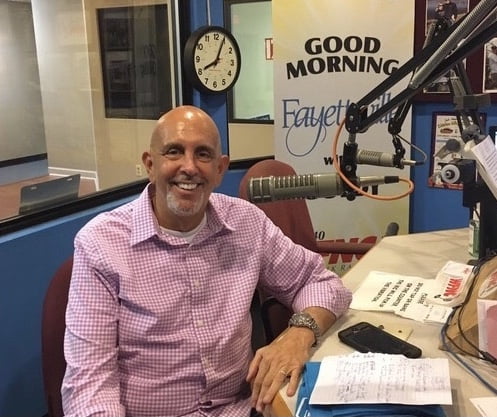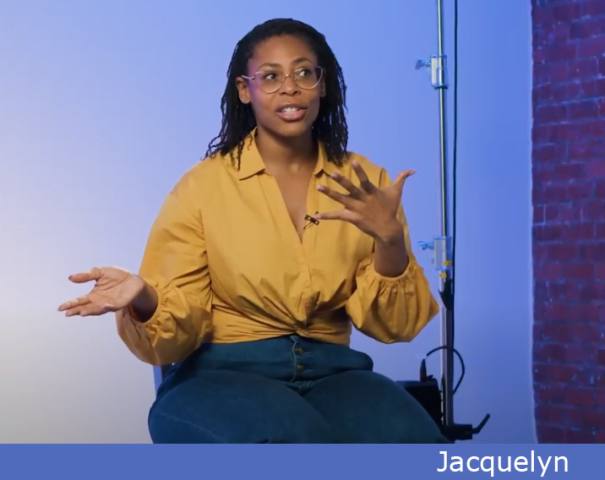
Alzheimer’s: from Denial to Empowerment
First came the denial.

Jay Reinstein’s unwillingness to accept that he had early onset Alzheimer’s disease was equal in magnitude to the responsibilities he would have to give up as the assistant city manager of Fayetteville, North Carolina. He was afraid the people working for him would judge him.
But disclosing his condition to coworkers was unavoidable. After Reinstein, who is 59, was diagnosed in March 2018, his doctor made this very clear: “You’re in a visible position and making decisions. You’ve got to tell them.” With encouragement from a therapist, Reinstein informed his boss, and together they mapped out a plan for telling the city’s elected officials and employees.
His disclosure wouldn’t be all smooth sailing. As news of his situation spread through City Hall, he felt hurt by the rumblings of some employees who felt he should leave immediately. What surprised Reinstein, however, was a feeling of relief after initially disclosing his condition to his direct reports during lunch at a local restaurant. “I felt the love, and people really cared. That made me confident that I knew I could tell others,” he said.
Seven months after his diagnosis, he retired – and he hasn’t looked back. Today, his daily schedule rivals that of, well, a city official.
Reinstein, who is now living in Raleigh, North Carolina, hosts a call-in radio program on Tuesday mornings to discuss issues involving race with his African-American co-host, Kevin Brooks, on WIDU 99.7 FM and 1600 AM. He relishes the challenge of doing research to prepare and even finds it therapeutic.
He is also one of two people with Alzheimer’s disease on the national board of directors for the Alzheimer’s Association, a role that includes occasional interviews with major newspapers. As a board member, he gets involved in strategic planning – just as he did in local government. Prior to joining the board, he spoke around the country on the organization’s behalf to put a public face on the disease and reduce its stigma.
Being around positive people “gives me a feeling there’s hope,” he said. “My philosophy is, I like to keep my brain busy.”
Bobbi Matchar, director of the Duke Dementia Family Support Program, says Reinstein is defying the stereotypes associated with Alzheimer’s. “Jay shows the world that it’s possible to have a joyful and meaningful life after being diagnosed with dementia,” she said – “and he does so with warmth, dignity, and enthusiasm.”
Reinstein’s activities are also his attempt to slow the progression of the disease at the same time that he’s grappling with it. Reinstein points to research showing that people with Alzheimer’s who withdraw from life regress faster. “I don’t want to be one of those people,” he said.

Emotional support is also critical to his ability to cope. At the top of the list of his many supporters is his daughter, Elizabeth Reinstein, who is 25. The pair have always been close, with a brief interruption for her turbulent teen years. But his Alzheimer’s diagnosis “did something special to the relationship,” he said. Elizabeth, a 1st grade teacher, calls at 6:30 every morning to check up on him. She helps him with things large and small – from traveling with him to speaking engagements to helping with the player lineup for his fantasy football team.
Elizabeth has had an easier time facing up to Reinstein’s condition than his wife, Angela Reinstein, he said. For example, his daughter accompanies him to Zoom meetings of the Duke Dementia Family Support Program every two weeks – the meetings were difficult for his wife, so she supports him in other ways.
“We had all these plans to travel to Europe but now things have changed,” he said, ”and caregiving is a very hard job.”
But for Reinstein, the denial he felt initially has given way to a feeling of empowerment, particularly in his work with the public for the Alzheimer’s Association.
“When I say empowering I mean [using] my voice at a national level and even in a small group. I can change minds or educate people,” he said. “I feel so fortunate.”
Squared Away writer Kim Blanton invites you to follow us on Twitter @SquaredAwayBC. To stay current on our blog, please join our free email list. You’ll receive just one email each week – with links to the two new posts for that week – when you sign up here. This blog is supported by the Center for Retirement Research at Boston College.
Comments are closed.







This is so inspiring. Never becoming completely “retired” is a huge part of Mr. Reinstein’s path to staying as much like himself as possible. And he appears to have a supportive backup group. His feeling from the love he received from those around is something I hope to be able to offer those around me facing challenges.